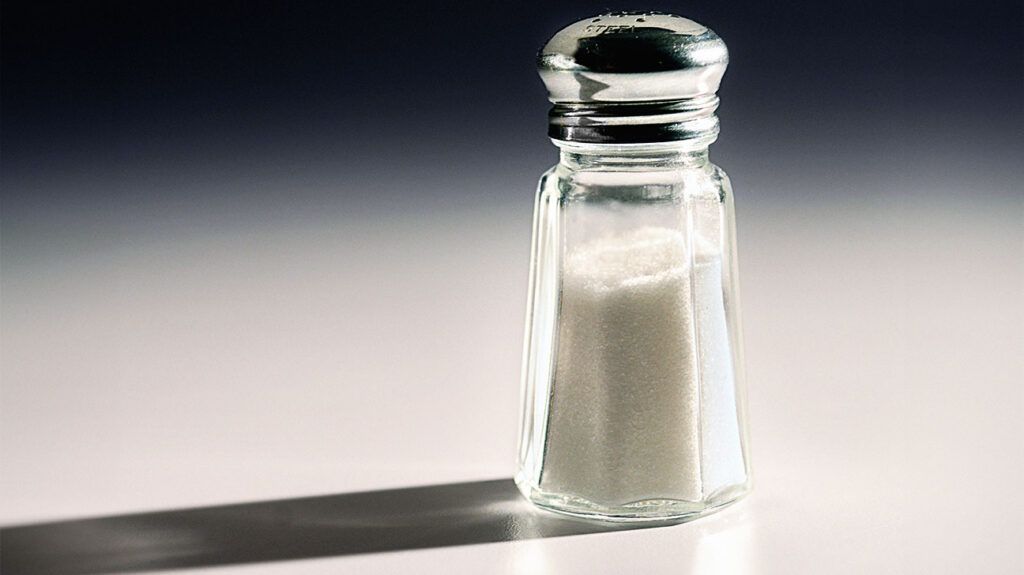Research into the effect of salt on migraine is ongoing. Some research has found that limiting salt intake may increase the risk of migraine attack. However, other research has suggested the opposite.
Migraine is a type of headache disorder that typically involves recurrent attacks of throbbing and pulsating pain on one side of the head. The pain ranges from moderate to severe.
The causes of migraine vary and many different factors may trigger a migraine episode. For example, some people experience migraine episodes when there is a sudden change in weather, when they feel stressed, or if they do not get enough sleep.
This article explores salt and how it may affect people living with migraine. It also discusses symptoms, triggers, and treatment for migraine, as well as when to contact a healthcare professional.
Headache and migraine resources
To discover more evidence-based information and resources for headaches and migraine, visit our dedicated hub.

An older 2016 study found that the likelihood of probable migraine history
The authors suggested that dietary sodium intake may impact migraine by modulating the regulation of extracellular sodium in the brain. Extracellular means outside of the cells.
However, more research is necessary to understand how salt intake affects the onset of migraine.
Suddenly limiting salt intake may trigger a migraine attack if a person has a history of eating highly processed foods with high salt levels.
A 2021 study found that when people
They also cited a small older study from 1980 that suggested some people could
Researchers
Furthermore, a 2024 study suggested that limiting salt intake over a longer period — about 5 years —
While limiting salt intake did not necessarily trigger headaches, it did not reduce them either.
However, a 2023 study associated the DASH diet — which aims to reduce blood pressure — with lower migraine attack frequency and migraine index score in females. The DASH diet involves
When a person has a migraine episode, the nerve fibers within the walls of the blood-brain vessels
In addition to pain, a person may also experience:
- nausea
- vomiting
- sensitivity to light, sounds, and odors
Migraine triggers vary between people but
- certain medications
- sudden changes in the weather
- hangover
- strong odors
- loud noises
- bright or flashing lights
- skipping meals
- smoking or secondhand smoke
- motion sickness
- too much or too little sleep
- stress
- anxiety
- depression
- overexertion
- low blood sugar
- fluctuations in hormones
The goal of migraine treatment is to relieve symptoms and prevent another attack from recurring.
Some people find relief when:
- napping or closing the eyes in a quiet or dark room
- using a cool compress on the forehead
- drinking lots of fluids, especially if they are vomiting
The Food and Drug Administration (FDA) has approved enenmab (Aimovig) as a preventive migraine treatment for adults. The FDA has also approved lasmiditan (Reyvow) and ubrogepant (Ubrelvy) for acute migraine treatment.
A healthcare professional may also prescribe other medications to manage symptoms of migraine.
If a person is taking any medications to treat their migraine, they should stay in contact with their doctor for monitoring potential side effects.
Additionally, a doctor may suggest a person makes lifestyle changes, such as exercising regularly, avoiding migraine triggers where possible, and establishing a consistent sleep schedule.
If a person begins to experience migraine episodes, or notices the severity or frequency of these episodes is increasing, they should speak with a doctor.
Anyone taking medication for migraine should update their doctor if they experience any side effects or if the treatment is not helping. A healthcare professional may be able to recommend a different medication or another treatment.
Some research suggests that limiting salt intake may trigger migraine attacks, while other research suggests the opposite. Further studies into the relationship between migraine and salt is necessary.
Migraine triggers can vary from sudden changes in the weather and stress to hormonal changes and motion sickness.
People may be able to manage migraine attack at home by using a cold compress on the forehead, napping in a dark and quiet room, and drinking plenty of fluids.
Additionally, the FDA has approved several medications for the treatment of migraine. A person should speak with a doctor about which treatments may work best for them. People should also contact a healthcare professional if migraine attacks become more frequent or severe.
